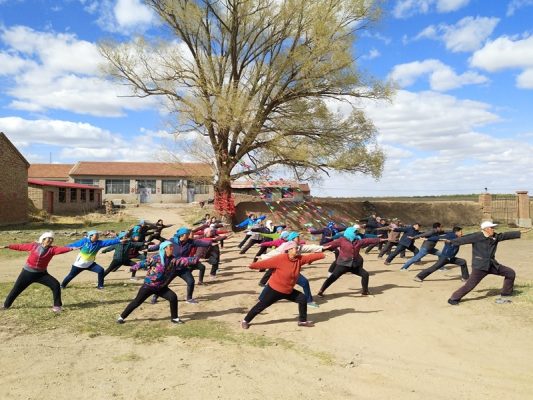As the Dragon Boat Festival (Duanwu Festival) approaches, the waters of many rivers and creeks in China’s cities have once again come alive with the sounds of drumming and cheering, as dragon boat teams compete by vigorously rowing across the sparkling water one after another.
This year’s Dragon Boat Festival falls on 22nd June, the fifth day of the fifth month on the Chinese lunar calendar. The festival is also inscribed in UNESCO’s Intangible Cultural Heritage given its significant role in Chinese history.
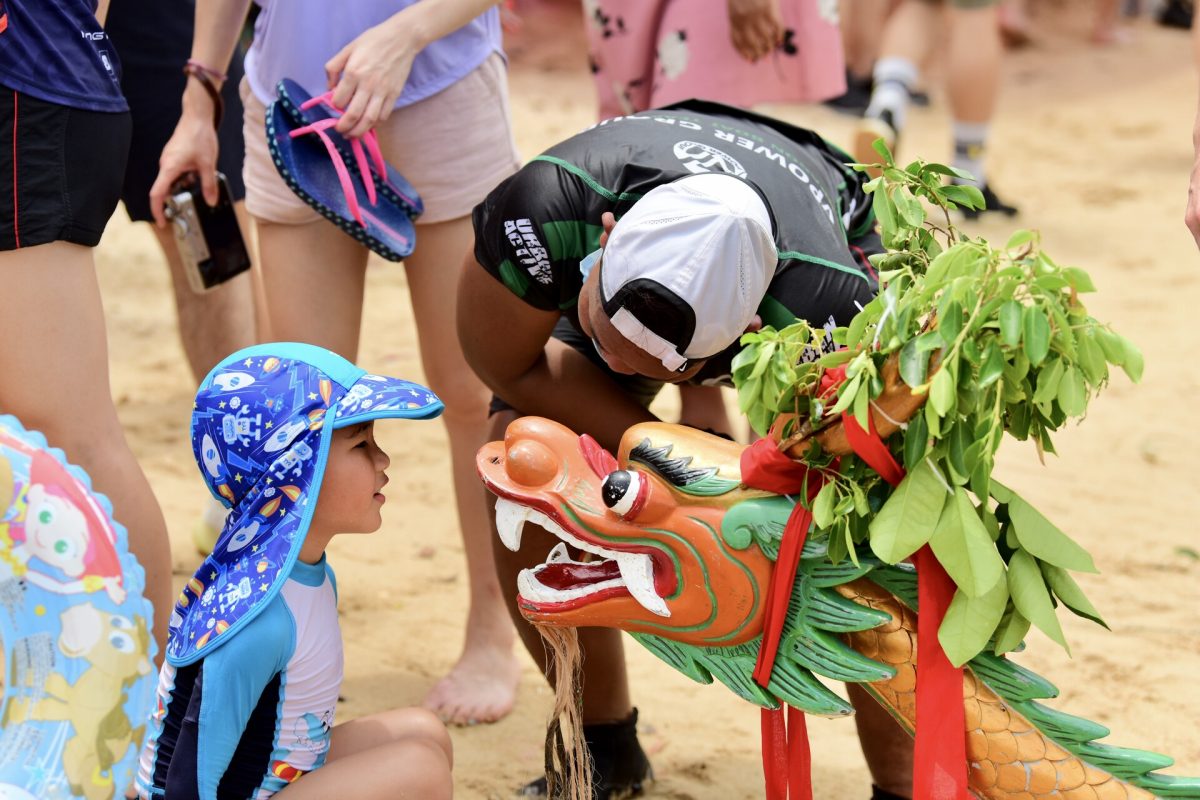
The Origin
Although tales of its origin differ, the two-millennia-old festival is widely celebrated in memory of Qu Yuan, a patriotic poet and loyal minister of the ancient state of Chu during the Warring States Period (475-221 BC).
Qu Yuan dedicated his whole life in helping the king to build his motherland stronger, but the king believed in slanders and punish Qu Yuan severely – exiled him to the remote Jiangnan region.
In 278 BC, the Qin army conquered the capital of Chu. Witnessing the invasion of his homeland, Qu Yuan was deeply anguished. On the fifth day of the fifth lunar month, he drowned himself in the Miluo River, located on the eastern bank of Dongting Lake in central China’s Hunan Province.
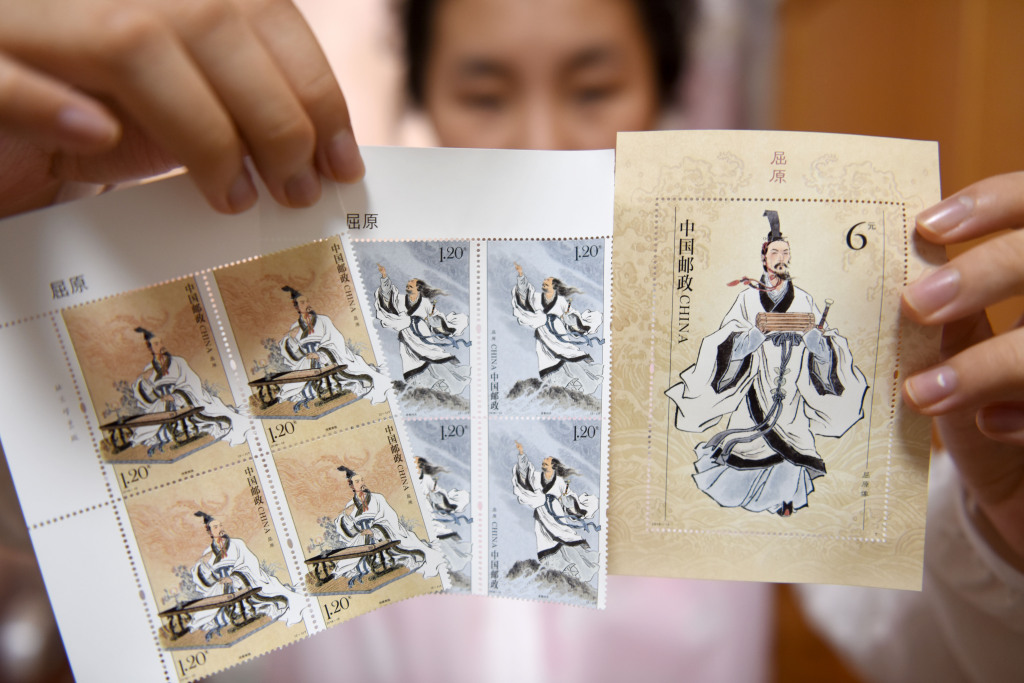
(Photo/CGTN)
Legend has it that locals rowed boats to save Qu Yuan. To keep fish from devouring Qu Yuan’s body, they threw rice into the water to distract the fish.
Gradually rowing developed into dragon boat racing and rice balls became Zongzi, or glutinous rice wrapped in a pyramid shape using bamboo or reed leaves, and passed down from generation to generation as a Chinese tradition.
What’s more, the fifth day of the fifth month of the traditional Chinese calendar became a festival in honor of Qu Yuan’s sacrifice, ensuring that the legacy of his unwavering love for his country is remembered for many generations.
The Traditions
Although the customs of the Dragon Boat Festival are diverse, they can be roughly divided into two categories: one is to ward off disasters and evil spirits; the other is to offer sacrifices. Such as:
1. Eating Zongzi: a traditional dish made of glutinous rice wrapped in bamboo leaves;
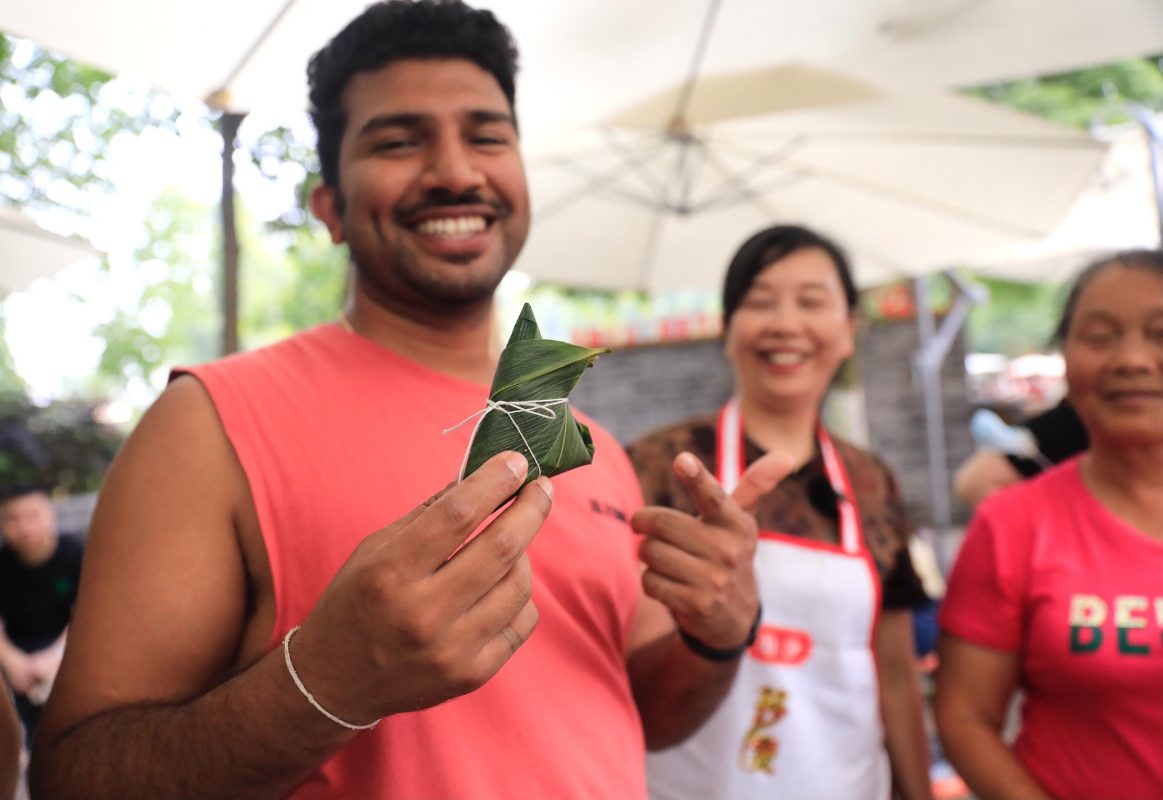
1.Dragon boat racing;
2.Hanging mugwort leaves: a medicinal plant, people use it to ward off diseases and mosquitoes;
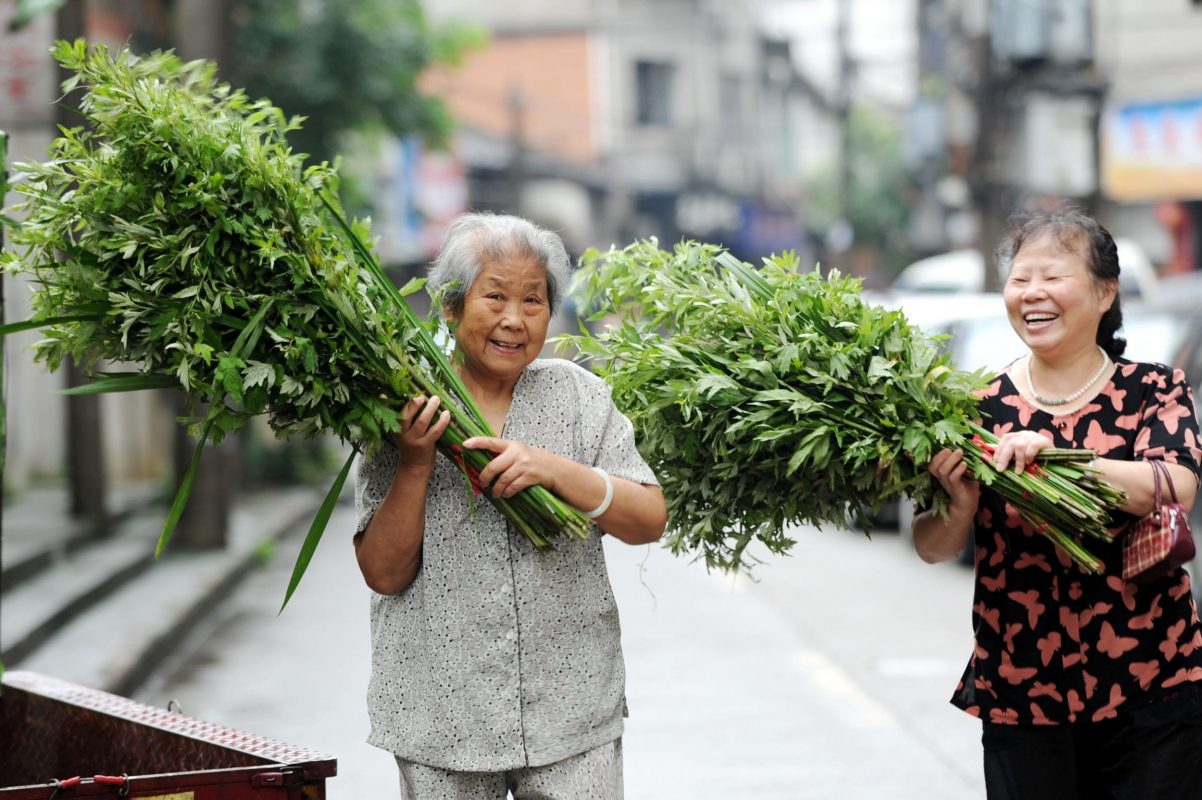
4.Drinking realgar wine: according to legend, the realgar wine can kill all kinds of poisons and can be used to keep poisonous insects away from the body;
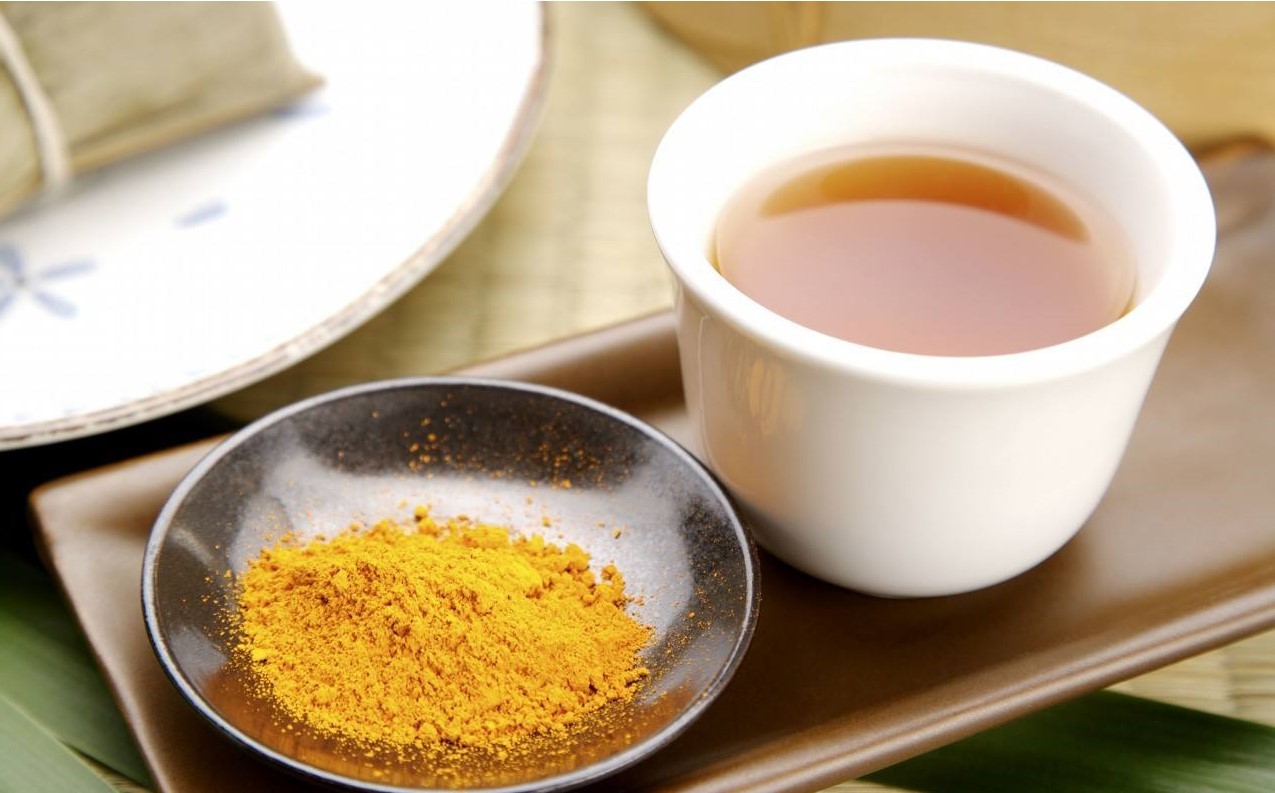
5.Tying five-colored threads on hand: five colors are auspicious colors, and legend has it that children with colorful threads can avoid snakes and scorpions.
Among them, the most lively and iconic is undoubtedly the dragon boat racing.
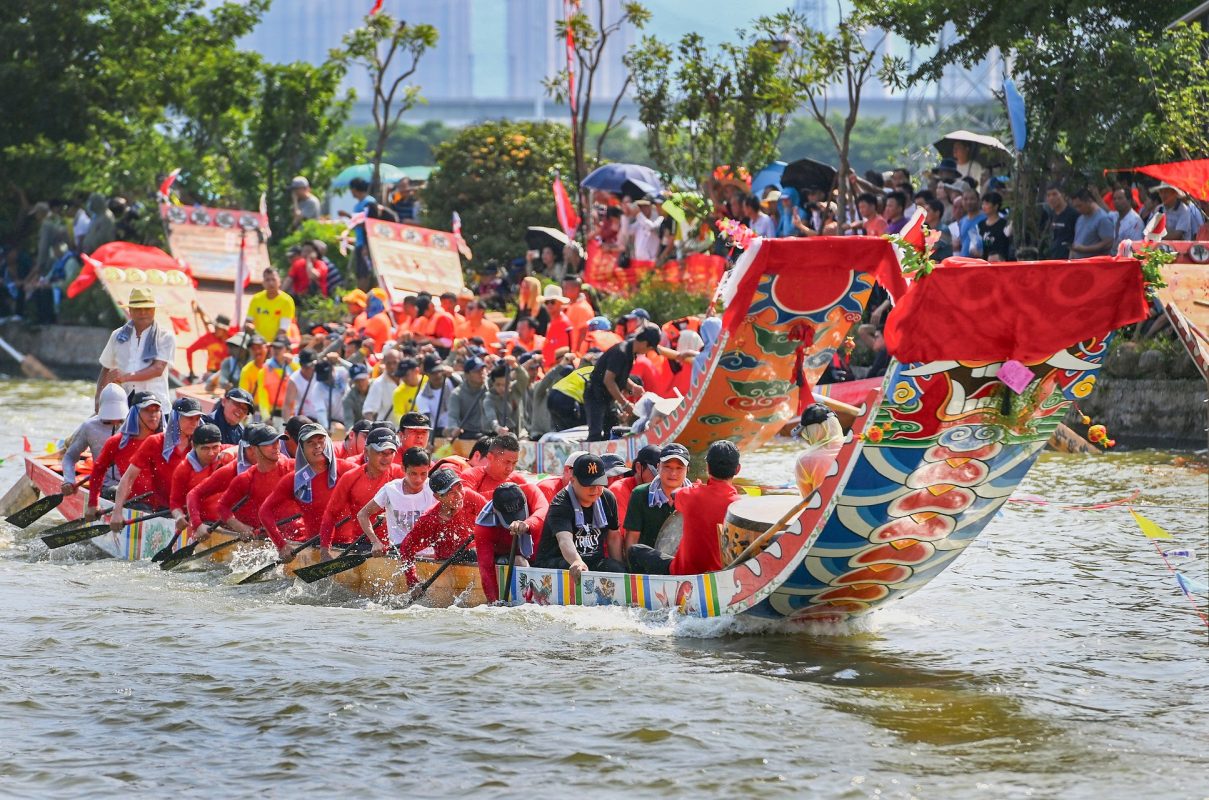
The Race
Dragon boat racing is often powered by a team of 10 to 50 paddlers on a very long and narrow boat decorated with a Chinese dragon head and tail. It also involves using a large drum onboard that helps the crew keep pace as they paddle.
People believed rowing motion dragon boats, cheering noise of the drum beat are signs to prosperity.
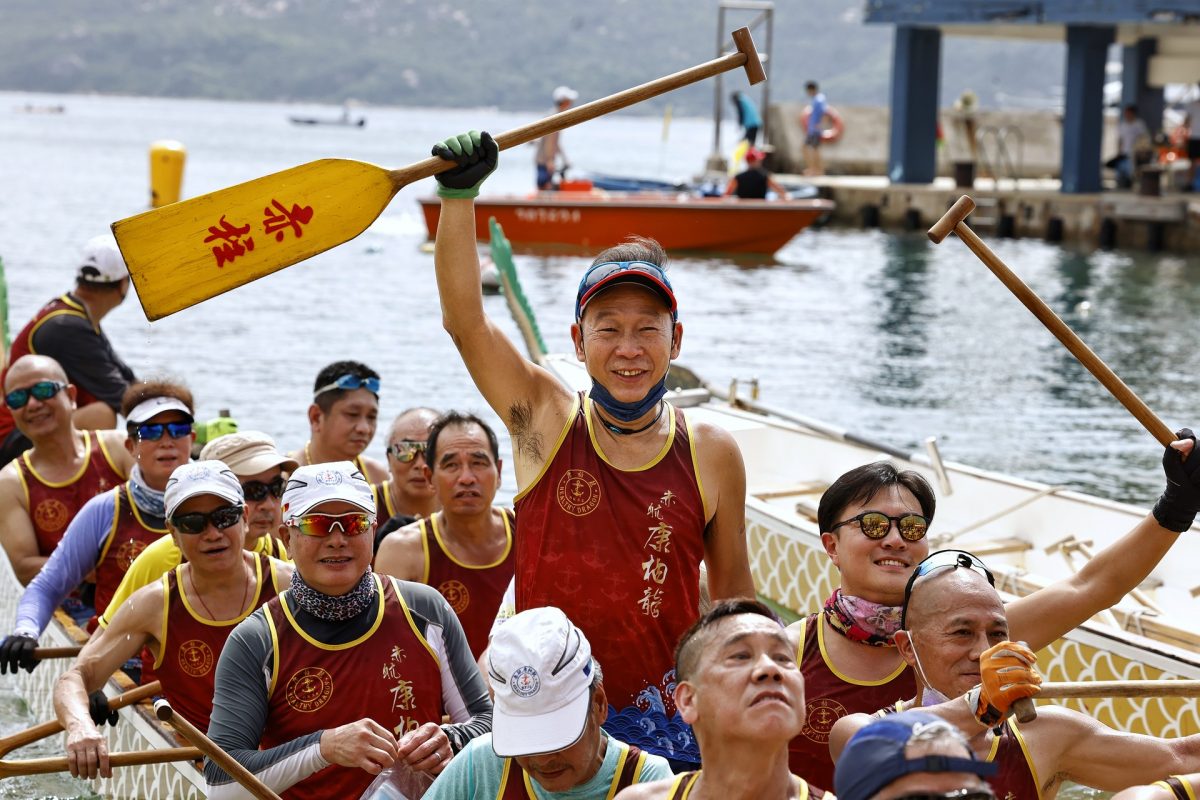
Though Guangdong is known as the “hometown of the dragon boat”, Hong Kong’s dragon boat races are also worthy of attention.
In fact, the first international dragon boat race in Hong Kong, with nine local teams against a Japanese team, started in 1976. For years, the international Dragon Boat Races were held in HK.
Since this year is the first year after all Covid-19 precautionary requirements are released, the Hong Kong International Dragon Boat Tournament will resume as a two-days’ tournament.
Besides athletic teams from Hong Kong, other teams from mainland China and overseas are joining the races. Altogether, more than 100 local and international teams gather in the Kowloon district for this attention-seeking competition.
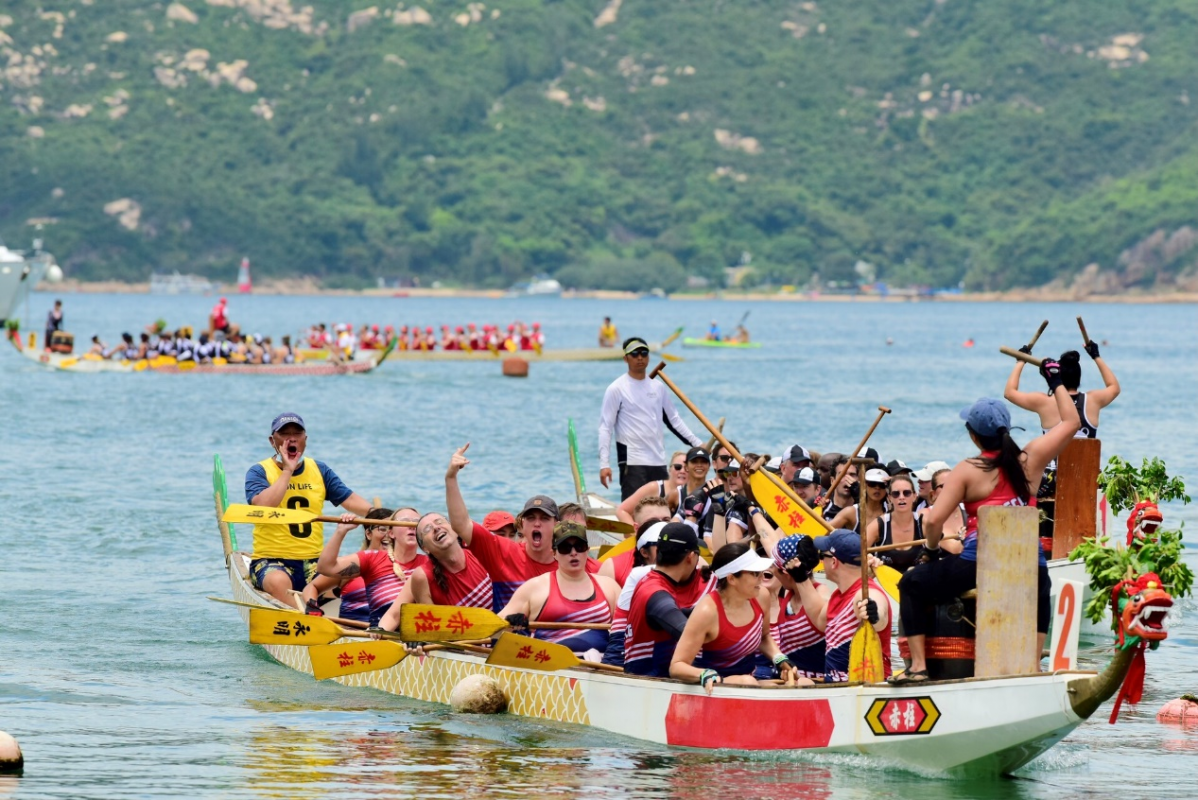
Today, dragon boat race is not just confined to the Chinese community, it has spread to other parts of the world, including the US, UK and Australia and so on.
In 2022, Sydney Dragon Boat Race was held in Australia from 5th to 6th February. A total of 70 members from different countries joined in. At the 39th America Boston Dragon Boat Festival of 2018, taking place in Charles River, 75 teams from New York, Rhode Island, and other places joined in the event.
The dragon boat racing highlights Chinese values and the spirit of teamwork and unity, thus becoming a Chinese culture symbol around the globe that is helping spread the nation’s traditional culture worldwide.
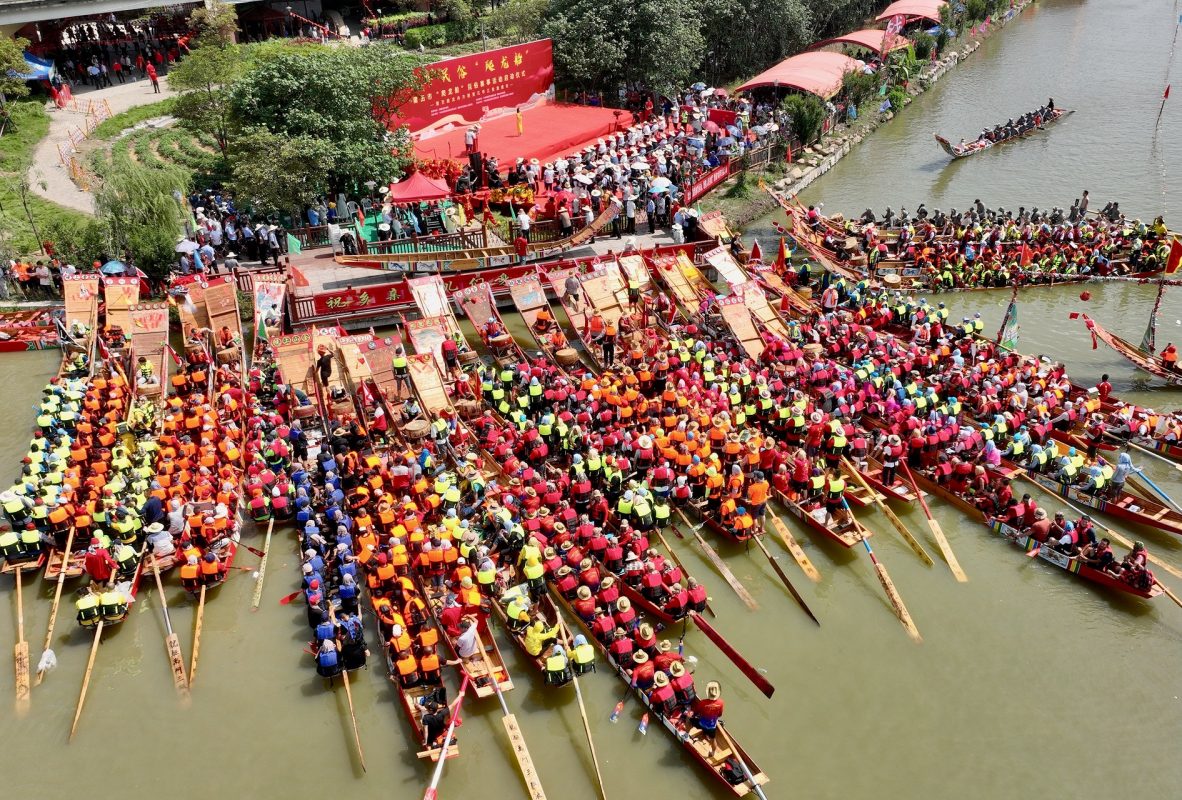
The Value
For thousands of years, things keep changing, except the traditional customs of Dragon Boat Festival continue passing down across the hallway of history. The festival has developed into an important cultural exchange hub where East meets West. As a younger generation, we share part of the responsibility to continue cultural spirit of the Dragon Boat.
Whether it’s through the sound of drumming, the cheers of competitors, or the sight of boats worth millions of dollars, the dragon boat culture is a tribute to China’s rich history and a testament to Chinese people’s strength and resilience.
(Photos are credit to HKCNA)


